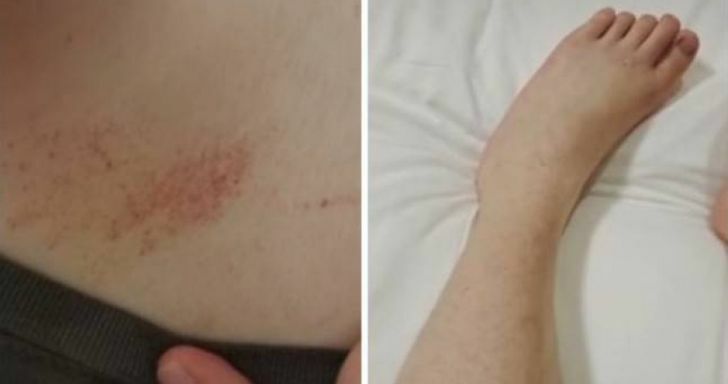Chinese student’s health scare underlines importance of early diagnosis

A 20 year old Chinese student was shocked when she was diagnosed with a critical condition after noticing unusual red spots and bruises on her body.
Initially, the Chinese student, from Changsha, China, thought they were mosquito bites or accidental bruises, but when the spots increased, she realised something was amiss with her health.
After returning home from a trip to Zhaotong during her term break, she immediately sought medical help. The Chinese student had a routine blood test and was stunned when the hospital contacted her about her grave situation. Her platelet count, which should normally range between 100 and 300, was only one. The hospital urgently requested her to return for further treatment.
She was treated at the hospital and diagnosed with a severe form of Thrombocytopenic Purpura (ITP). From July 10 to 22, she had to undergo daily blood tests and four to five-hour-long intravenous treatments, causing her hands to swell. She also had a bone marrow biopsy.
Her hospital treatment cost over 10,000 yuan (50,000 baht), and after discharge, she had to take Ethanol daily, which cost almost 1,700 yuan per box, amounting to over 20,000 yuan in total.
The 20 year old student warned others that it is crucial to pay attention to one’s health, urging young people not to ignore any health abnormalities and seek immediate medical attention, reported Sanook.
Medical advice
Professor Xu Shuangnian, Director of Hematology, advised that if one notices unexplained bruises or purple skin discolouration, bleeding gums, or persistent nosebleeds, they should see a doctor immediately. If diagnosed with ITP, three things should be noted.
Firstly, consume soft food to reduce the risk of bleeding and be particularly cautious with fish or chicken as their bones could cause injury.
Secondly, if symptoms worsen, rest in bed or avoid excessive physical exertion until the condition stabilises.
Lastly, maintain good health to prevent colds or diarrhoea, which could stimulate the immune system’s response and cause further damage to the platelets.
Latest Thailand News
Follow The Thaiger on Google News:


























